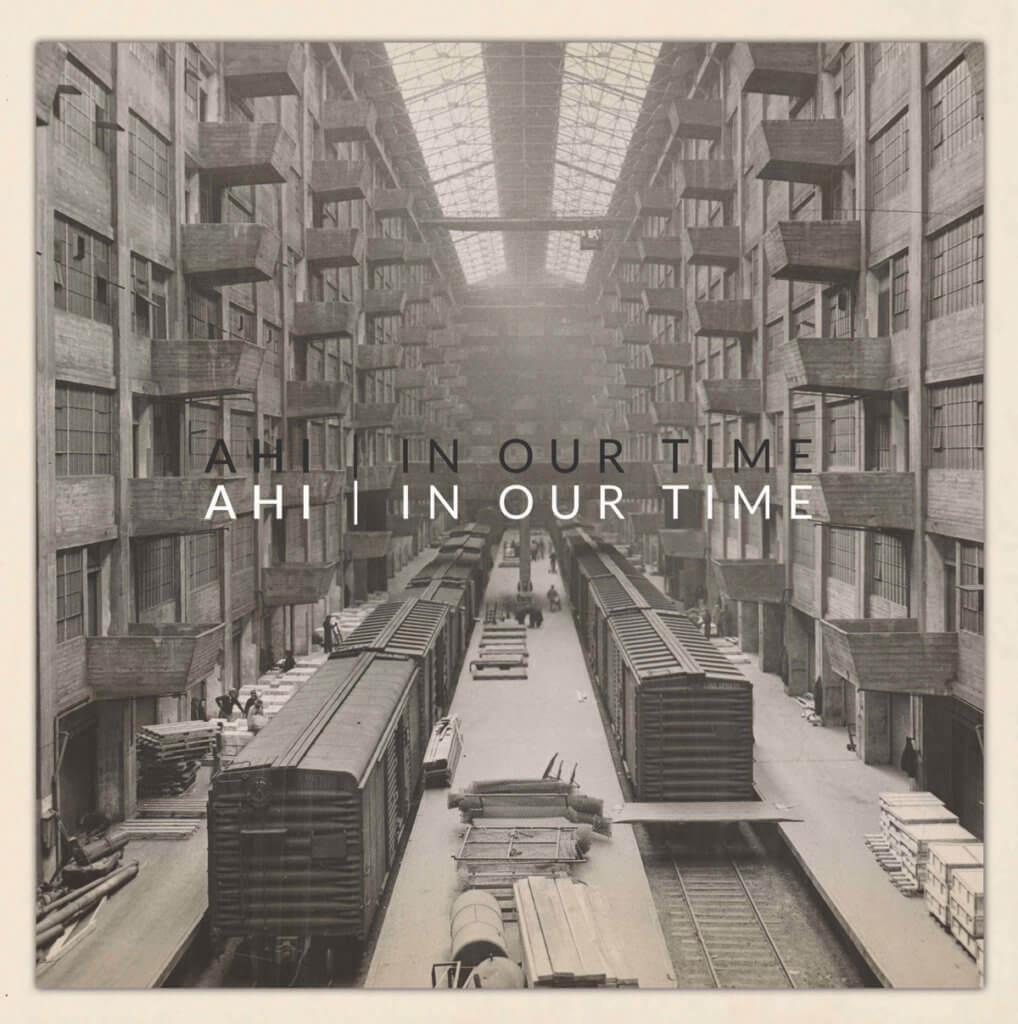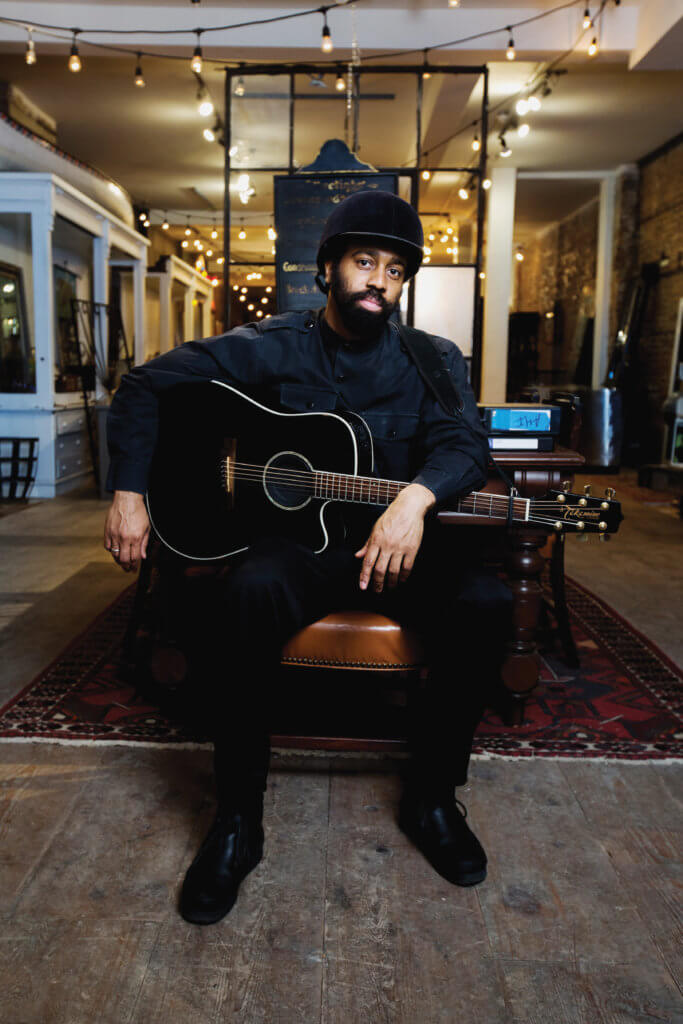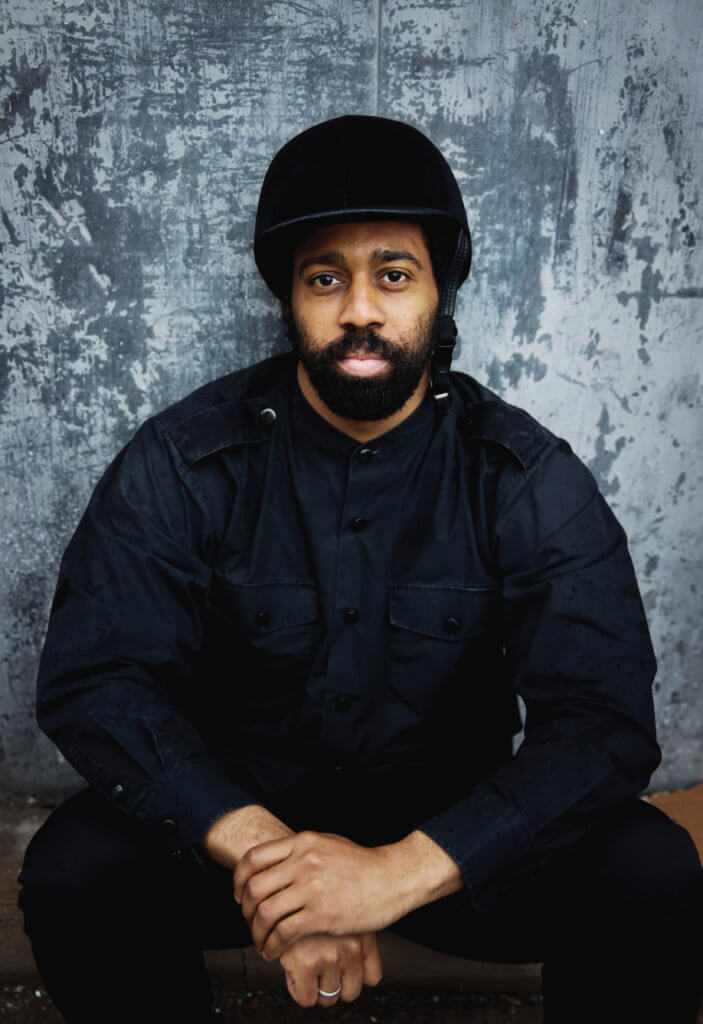Ahkinoah Habah Izarh, otherwise known by his stage name AHI, is an antidote to the hyperconnected, yet disconnected world we occupy. With a career built from humble beginnings, he made genuine connection and the pure love of music cornerstones of his musicianship as he grew his fan base with his sweet, soulful, moving indie-folk ballads. Speaking to him was like speaking to an old friend, warm and convivial; and his sentiments, just like his lyrics, allow us to thoughtfully consider the space we take up in the world and how we can make an impact just by being ourselves.
Your stories present themes and stories that are so visceral and so emotional with such ease. How do you tap into these deep emotions and feelings and bring these lyrics to the page?
I write everything for myself first. It has to move me and mean something to me first. And I believe that if you go deep enough into your own feelings, then it will connect and move others as well. We are all human beings living the same life for the first time, and although we are complex creatures, the things that move us are very simple. I try my best to home in on those things and be as honest and straightforward with it as possible.
You started out by touring independently for over 100,000 miles. What was this experience like, and what did it teach you?
Be ready. You never know who’s in the audience and what they are going to take away from it. I’ve performed for all kinds of people from every walk of life, and the biggest philosophy I’ve taken from that is “ten or 10,000”; it doesn’t matter how many people are in the room, give everything you got and leave it all up there on stage. The next show will be a new experience.
Your career also got a kickstart from a Bob Marley video you posted online. Tell me about this.
I was in Oxford Circus with my wife and daughter, and we accidentally shot a father-daughter cover of “No Woman, No Cry.” The song got a small amount of traction at first, and then out of nowhere I noticed the YouTube streams going up by the hundreds each time I refreshed the page, and my Facebook likes were doing the same, so I knew something had happened. I realized the official Bob Marley website and estate had shared my video on their social platforms once I received a letter from Rita Marley herself. It was a bit surreal, because Bob Marley is my all-time [favorite] songwriter and singer.

Your songs are like a conversation. Once your listeners hear your songs, what is your intention? Is it that they live more intentionally, have hard conversations that they need to have, or simply take care of themselves?
I just want people to feel something.
You mentioned it can be hard to fit into the music scene. Can you speak more to that and how you create your community in this space?
I’m pretty much an outsider in a lot of ways. I don’t come from a musical background, either, and I started in the scene later than most. So, I often feel like I don’t really get this industry, which has also helped me navigate in my own lane, to be fair. Like I said, we are all just human beings, and I’m not much different than you or anybody else. I feel like if you approach your emotions, feelings, and deep thoughts with a purity and honesty, it’s gonna resonate. And when people hear my songs, they really stick with them because they feel the humanity in it. They know it’s sincerity and unprocessed.
Your latest album was produced analog-to-tape first. What was your intention with this?
Truth be told, I wasn’t planning on doing it that way. I’ve always appreciated the idea of analog recording. Primarily because I feel like when you record analog, less is getting in the way, the vibrations and sonics remain pure and intact. When analog is done right, it’s unlike anything, and all of the earlier music is recorded that way. But when the possibility was presented to me, I was a little nervous because I kind of outgrew my romanticism for analog and began to think about all the obstacles that could come with it.

Andrija Tokic (Alabama Shakes, Hurray For The Riff Raff) who produced In Our Time walked me through his studio before we started recording together and explained how the process would be. Everything was done manually. There’s no spacebar, or cut and paste; when you need to redo a vocal, it’s literally Andrija counting you in and hitting the large button on the tape reel to record the new vocal over the last one.
Thankfully we didn’t have to splice any tape or do anything too rigorous, but I was extremely surprised with how it turned out, and I’ll forever own all the original tapes from the recording of In Our Time.
What production elements do you utilize most with your genre-blending music?
It basically all starts with my voice, my guitar, and my songwriting. Everything else kind of lives around that.
How do you bring your connection to your audience to your live shows?
Again, it starts with the songs. But I also do a lot of storytelling at my shows, and the audience is always down for it. Sometimes my stories are just shy of ten minutes—that’s almost like three songs—and it’s just me talking to the audience, but they always want more.
It goes back to the idea that those people out there are the same as me, and that’s exactly how I treat every one of them.
What’s next for you?
I’ll be putting out some new music in the next decade. 2020, to be exact. Expect a new album and some of my best work to date.

